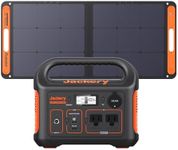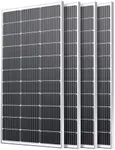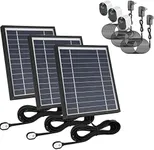Best Solar Panels
From leading brands and best sellers available on the web.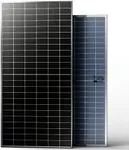
JJN
5%OFF
JJN 550 Watt Bifacial Solar Panels 2PCS,12/24/48 Volt 1100 Watt Solar Panel,Monocrystalline for Homes Rooftop Farm RV and Off-Grid Applications
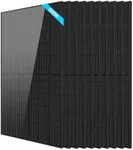
SGPWOSAY
SUNGOLDPOWER 10PCS 500W Solar Panels Monocrystalline UL 61730, Grade A Solar Cell, Waterproof IP68, High Efficiency Solar Panel On/Off Grid Supplies for RV, Tiny house, Marine, Household (Total 5000W)

SGPWOSAY
SUNGOLDPOWER 16BB N-Type 6pcs 560W Bifacial PERC Solar Panels Monocrystalline, High Efficiency up to 30%, High Power PV Module for Off-Grid, Residential & Commercial Solar Systems(6pcs 560W Bifacial)
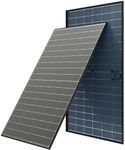
JJN
JJN Bifacial 2PCS 400 Watt Solar Panel, N-Type 16BB 400W Solar Panels, 25% High Efficiency Monocrystalline Solar Module for 12V/24V/48V PV System for Homes Rooftop Farm RV and Off-Grid Applications
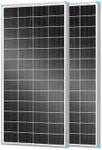
Renogy
Renogy N-Type 400 Watt Solar Panel 24 Volt, 2Pcs 200W Solar Panels 16BB 25% High-Efficiency, PV Module Power Charger for RV Marine Cabin Roof Home Farm Battery and Other Off-Grid Applications
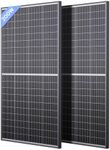
Callsun
15%OFF
Callsun N-Type 16BB 400W Bifacial Solar Panel, 2Pcs 200 Watt Solar Panel 12V, 25% High Efficiency, Dual-module Parallel Anti-Shade Design, for RV Van Marine Home Rooftop Off-Grid Systems (2 Pack 200W)
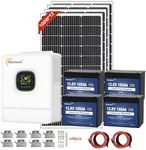
BESTSUNSOLAR
BPS-5000W Solar Power System with 1200W Solar Panels for Home, 51.2V 100Ah LiFePO4 Battery 5120Wh 5KW Powerwall and 5KW 120V Hybrid Inverter for Homes and Solar Power Generator
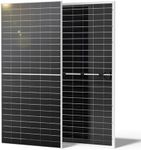
Renogy
Renogy 1180W Solar Panels 2pcs 590 Watt N-Type Bifacial Solar Panel Monocrystalline 16BB 25% High Conversion Efficiency for Homes Roof Top RV Boat Camping Black
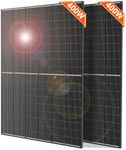
DOKIO
DOKIO 800W (2×400W) 31V Mono Solar Panels - Works for 12/24V Systems, 9.84ft Leads per Panel for Garden/Yard - Home/Backyard Shed or Cabin, Off-Grid Battery Charging
Our technology thoroughly searches through the online shopping world, reviewing hundreds of sites. We then process and analyze this information, updating in real-time to bring you the latest top-rated products. This way, you always get the best and most current options available.

Most Popular Categories Right Now

